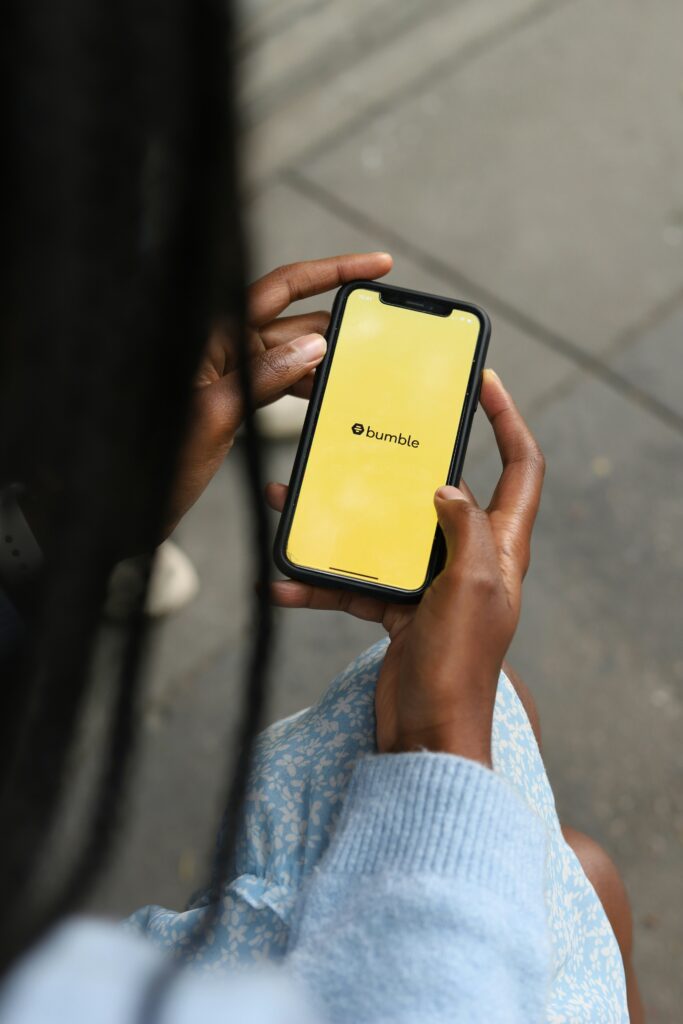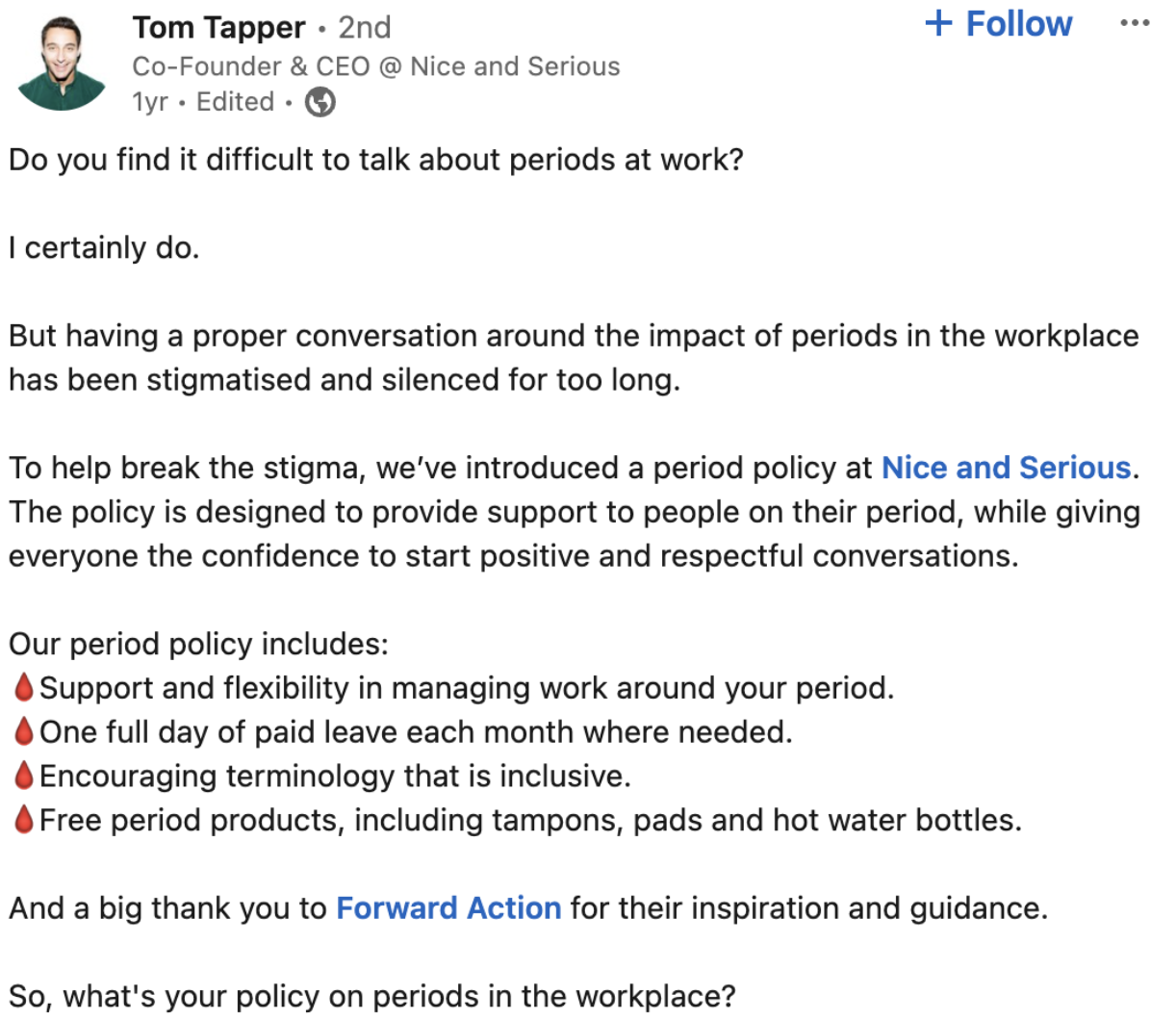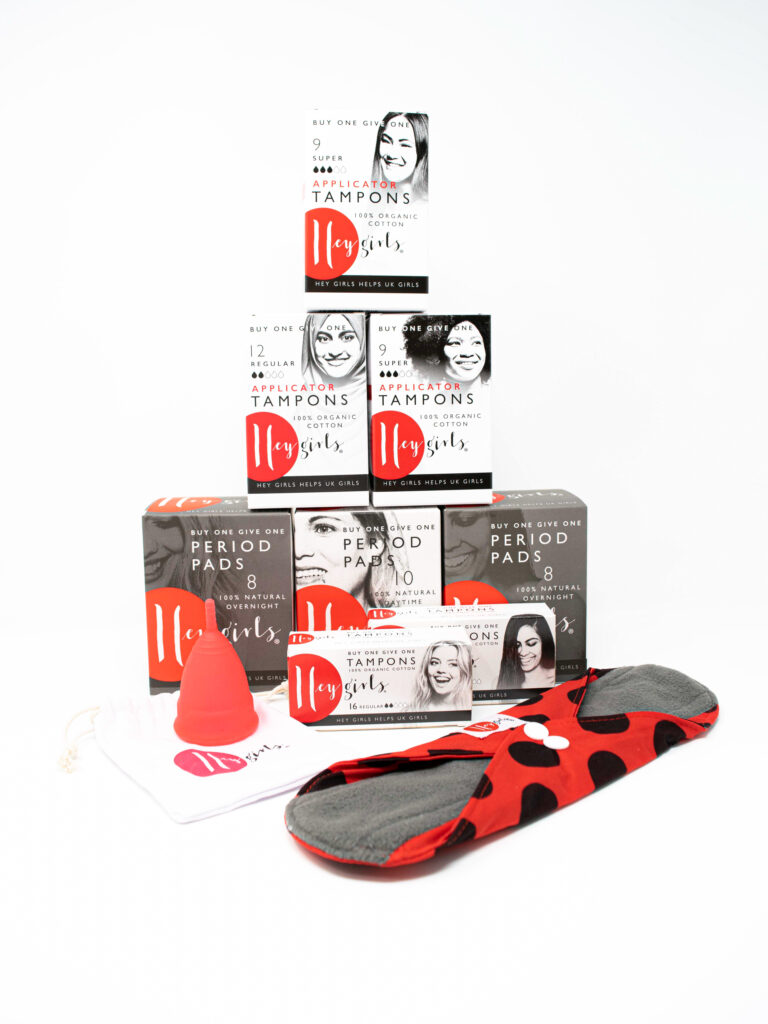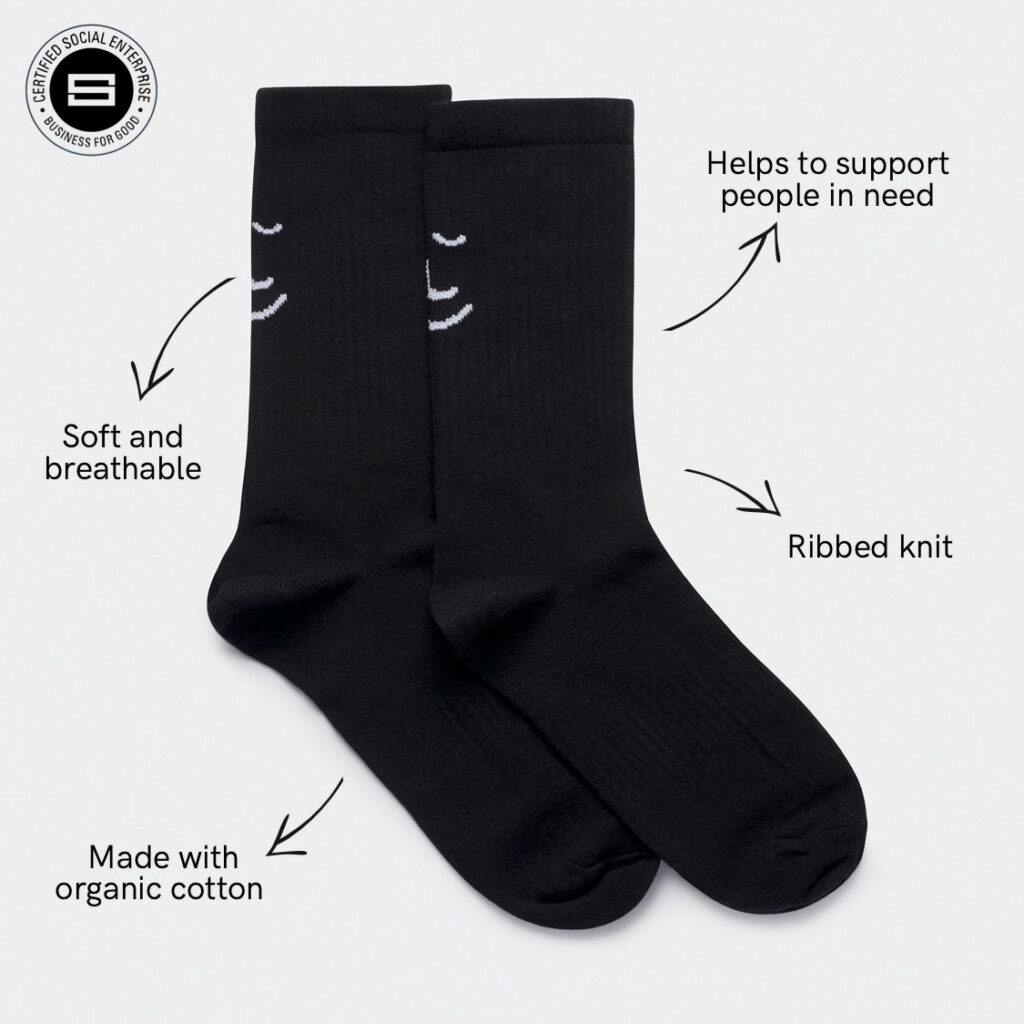How top brands inspire gender inclusivity in their workplaces and how you can too
5/3/2024
Editor’s note: We made a mistake, and here’s why we’re glad.
It’s not always easy to admit when you make a mistake, especially when the error is tied to a subject that you care about. But, what’s more important than being right, is being honest.
International Women’s Day is not just a celebration of the contributions women make to society, but an actionable framework that allows resources, energy and attention to be channelled to where it can have the most impact.
So when convincing sister sites promote alternative themes (with great effect) it can work against this mission, diluting and dispersing our efforts. This year’s IWD theme is not ‘Inspire Inclusion’ as we had thought, but ‘Invest in women: Accelerate progress’ and here’s why we’re glad we’re wrong.
In 2015 193 UN member states all agreed to create gender equality on a global scale by 2030, as one of the Sustainable Development Goals. Fallout from Covid-19 and the growing climate crisis puts an increasing and disproportionate demand on women. With current global measures as they are, that target is growing further and further out of reach.
We need to get back on track and to do so will require closing the $360 billion deficit in gender-equality measures and focusing on the metrics that really move the needle. Making bold moves towards a ‘care society’ by recognising that the health of women and that of our planet are inextricably linked is one way this could be achieved systemically.
The reason we’re so passionate about social enterprises is because they already care about more than just profits, but people and the planet too. The word social enterprise isn’t just a descriptor of how business is done, but a playbook for how society could make this transition as a whole, and reinvest resources and profits to create a better world for all of us. We’re particularly proud that over half of our social enterprise partners are run by women, and that a considerable portion of those work to better the lives of women in turn. Like The Glasshouse and Y.O.U Underwear, perpetuating this cycle and creating a ripple of change.
Both the themes of Inspire Inclusion and Invest In Women have their merits, but one is arguably more quantifiable than the other. Investments are trackable, traceable and provide a clear avenue for change at a political level. It requires not only that we hire, promote and support the wellbeing of women at work, but that we vote for and invest financially in their future. This true call to action hits the nail on the head in terms of the scale of change needed and is a rallying cry to businesses and nations alike to put their money where their mouths are.
Closer to home we remain inspired by the businesses we explored in our original article, even with this new context. Our hope is to use it to foster more conversation about gender equality and ultimately more action. Let’s revisit..
..Bumble, for allowing Mothers to nurse their children in their ‘mummy bars’ and offering flexible hours to adjust to the burden of care work without jeopardising their careers. The next generation of women will be likely to do 2.3 more hours of unpaid care and domestic work per day than their male counterparts, putting their ability to advance on the backburner.
Creating flexible working environments and normalising conversations about gender roles will continue to put equality front and centre of our everyday lives. Giving us all an opportunity to acknowledge how this added burden impacts the women around us and take action to mitigate it.
Nice & Serious, for creating yet more open dialogue with their team, destigmatising menstrual health and creating inclusive policies that encourage women to stay in work for longer. One in 10 girls in Africa miss school due to lack of access to facilities and period products, reducing their time spent in education and way out of poverty. Eradicating poverty is one of the five key areas identified by the UN that requires urgent addressing as part of IWD as more than 342 million women and girls toe the poverty line at present. By changing the conversation about access in our workplaces and supporting organisations that operate in this sphere – for example by buying period products from our partners Hey Girls – will ensure solutions like this are seen as vital in the fight against inequality, not just a nice-to-have.
Hogan Lovells, for their contribution to ensuring equity at all levels of their business, by promoting, hiring and retaining talent from diverse backgrounds. As we discussed in our original article, below, having more women in senior management results in better environmental commitments, socially responsible policies and collaborative environments. Climate change affects women disproportionately and only amplifies inequality. With the burden of care, finding food and water, alongside other domestic chores, the warmer our climate becomes the harder women have to work. This then reduces their access to education and causes a vicious cycle of exclusion from opportunities. Ensuring that women reach the higher levels of organisations is imperative to build the kind of world we all can thrive in.
So what happens now?
Creating the kind of systemic change that is required to put gender equality back on track will take many more of these kinds of conversations. But more important still is measuring and reporting the progress we’re making, amplifying the voices of feminist groups who know more about this topic than anyone and ensuring the right information reaches a wider audience.
So, with this new context we’ll continue to keep this challenge in sight within our own business and network. And thank our lovely newsletter subscribers for holding us accountable.
What have you learned this International Women’s Day?
__________________________________________________
3.5 million women in the UK considered leaving employment last year. That’s nearly ¼ of the female workforce. In the 49 years since International Women’s Day first launched, there has been much to celebrate, but issues like unequal pay, fewer women in leadership and menstrual health challenges still remain.
This year’s IWD theme ‘Inspire Inclusion’ is a fresh call to action, encouraging open conversations, ideas and advocacy on both sides. In business, our internal policies can have a lasting positive impact on both women’s lives and bottom lines, making it one of the best ways to show support.
Here you’ll learn why diversity is good for business, get ideas from brands going the extra mile and discover a helpful guide on how you too can inspire more inclusion in your workplace.
Gender inclusivity is good for business, period
Female representation at all levels of business is cause for celebration, not just because it is linked to higher profits. From more socially responsible policies and honesty about environmental claims, to better retention of top talent, women create collaborative environments that allow people to thrive. Yet despite these impressive results, women still only hold 28% of C-suite roles and for women of colour this falls to just 6%.
Competition in the market is fierce, so maintaining diversity at every level of your business will enrich your culture and performance, giving your company an advantage. Coupled with policies that empower female employees, more women will stay in work for longer, creating further resiliency. A strong business case for inclusion!
Lessons from leaders
Bumble, a champion of gender equality, has women’s needs baked into the heart of the company. After experiencing sexual harassment, founder Whitney Wolfe Herd left Tinder to start her own dating service where women make the first move.

Bumble takes women’s advocacy seriously inside and outside the office; 85% of their employees are female and 9 out of 11 directors too. The HQ in Austin boasts a ‘mummy bar,’ a private area for nursing mothers, ‘micro-agility’ in the working day allowing for time to deal with life’s events, generous parental leave and they even publish their gender pay gap. With more than 50 gender-identity options in the app itself, Bumble recognises the power of inspiring inclusion as part of their culture and is thriving as a result.
Creative agency, Nice & Serious co-founder & CEO Tom Tapper has taken a direct approach to inclusion by implementing new policies for his employees. Flexible work arrangements, one day’s paid leave per month and free period products all feature as part of their initiative.

“After launching it, we had assumed that the biggest impact would be offering an additional 12 days paid leave per year” Tom told us. “This has undoubtedly helped, but perhaps the most significant impact has been the destigmatisation of periods in the workplace – the team are now much more open to talking about it, and communicating with their team when its impacting their work.”
82% of the Nice & Serious team report they’re more confident and happy discussing periods at work. An important metric considering 57% of working women feel compelled to lie if their cause of absence is period pain. Nice & Serious show us how small changes in language can help normalise periods and have a positive impact on inclusion.
Tom went on to say that “From a business perspective, it’s also helped to create a virtuous circle. After launching the Period Policy, people asked if we also had a menopause policy (which we didn’t). So we’ve just launched that this year as well. As the saying goes, one good thing leads to another…”

It’s not just SME’s embracing inclusivity either. Hogan Lovells, a global law firm, was one of the first in the industry to set targets for women at senior levels and includes partners in their gender pay reporting. Their policies cover menopause, fertility treatment and pregnancy loss support, alongside parental transition coaching and maternity mentoring. All of which creates an inclusive workplace for new and aspiring mothers and people who menstruate.
For this and several other reasons, they have a 4 out of 5* rating on Glassdoor and was ranked #1 on Law360’s Pulse Leaderboard in 2023. They also achieved the Mansfield 1.0 Certification Plus after demonstrating a commitment to hiring, promoting or including 30% women lawyers from underrepresented groups at all levels, proving that inclusivity in the workplace is a strong catalyst for success.
From policy to practice
Policies are a great way to articulate your intention to inspire inclusivity. But as we’ve seen in these case studies, if you want to see results such statements can’t be left to gather dust in a cabinet.
Consider practices that empower staff and support their wellbeing and productivity, like remote working options, paid leave, flexibility during working hours and wellbeing support. Organising training through charities like Bloody Good Employers, or setting tangible targets for inclusivity can all help to reduce stigma and build trust. Or join forces with other businesses and rally around a cause, like Mischon De Reya have done by joining The Valuable 500 to publicly declare their stance against disability discrimination. Which, alongside their race equity network and comprehensive wellbeing programme, shows a systemic commitment to creating real change.

More simple still, supply free period products for team members just as you would lunch snacks. Our brand partner Hey Girls offer period pants and tampons on a buy-one-give-one model, where each purchase supports girls experiencing period poverty in the UK. Send us a message now and find out how we can provide your office with eco-friendly menstrual products that have a positive impact.
A ripple of change
At Social Supermarket, we’re all about impact.
“Gender diversity has always been top of mind given us three founders are men and we have tried to be very conscious about how to incorporate inclusive policies into the business, from flexible working to extended maternity leave pay. We’re always working on how we can improve within the business and how we work with as diverse a supplier network as possible.” – Jamie, Social Supermarket co-founder & CEO.
We help businesses like yours source their office supplies and branded merchandise from our network of social enterprises, over 50% of which are female-led. Like these beautifully made hats, socks and totes by Leiho, whose sales fund employment projects and essential care items for people experiencing homelessness.
With our model, we ensure you have more than just an efficient procurement team in your inbox, but a supportive ally on your journey to inclusivity.
Take the next step
Inspiring inclusion in the workplace is the first step on the long road to equality. One that will change as more women are invited to share their experiences without fear of ostracisation or judgement. As we’ve seen, implementing policies such as the provision of free period products, flexible working or support for women experiencing menopause or pregnancy loss are not just inclusive, they’re human.
By recognising the challenges women’s health can have on productivity and wellbeing, more women will stay in work for longer. Creating more collaborative, ethical and profitable businesses in the process. That means your next policy could create a ripple of positive change that we’d wager is a true win-win, for everyone.
Send us a message now and let’s take the next step together.

